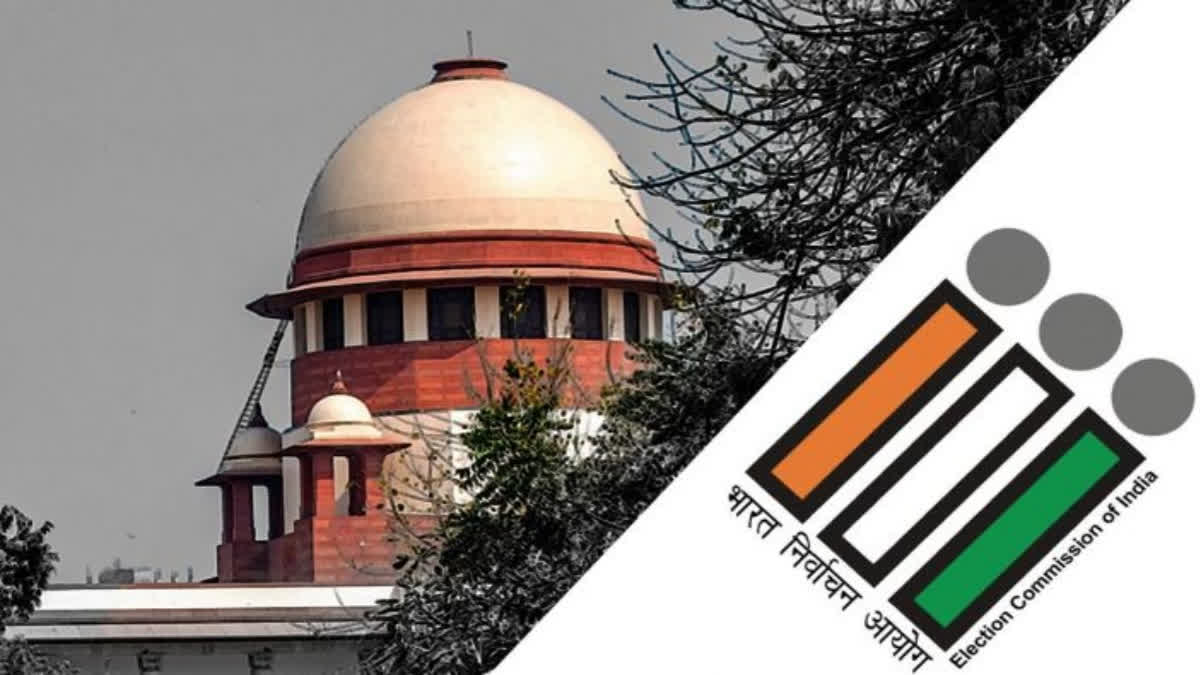New Delhi: Two petitions have been filed in the Supreme Court challenging the validity of new law on appointment of chief election commissioner (CEC) and election commissioners (ECs). The new law has replaced the Chief Justice of India by a minister in a panel to be set up for the purpose of selecting the CEC and ECs , which is directly in conflict with a judgment delivered by the apex court.
Madhya Pradesh Congress leader Jaya Thakur and one Sanjay Narayanrao Meshram filed a plea against the Chief Election Commissioner and Other Election Commissioners (Appointment, Conditions of Service and Terms of Office) Act, 2023.
Thakur’s plea sought a direction for declaring the provisions of the 2023 law as ultra vires under Articles 14, 21, 50 and 324 of the Constitution inasmuch as these are violative of the principles of free and fair election, apart from being contrary to the principles laid down by the Supreme Court in the case of 'Anoop Baranwal Versus Union of India'.
The plea contended that the practice of appointing the member to the election commission without following a fair, just and transparent process of selection by constituting an independent and neutral collegiums/selection committee to recommend the name and without making a law for the same as obligated in Article 324(2) of Constitution, is discriminatory and violative of Article 14 of the Constitution.
The plea stressed that it is inherent in a democratic set up that the agency which is entrusted the task of holding elections to the legislatures should be fully insulated so that it can function as an independent agency free from external pressures from the party in power or executive of the day.
Another plea filed by a lawyer sought a direction to Centre to implement an independent and transparent system of selection constituting a neutral and independent selection committee for appointment of the CEC and other ECs.
The plea, filed through advocate Sanjeev Malhotra, said: “The pivotal legal question…revolves around the constitutional inquiry of whether the Parliament or any legislative assembly possesses the authority to promulgate a gazette notification or ordinance to nullify or amend a judgment previously rendered by this Hon’ble (Supreme) Court, particularly when the judgment emanates from a Constitution Bench.”
In March last year, a five-judge bench of the Supreme Court had unanimously ruled that a high-power committee consisting of the Prime Minister, Leader of Opposition in Lok Sabha, and the Chief Justice of India must pick the CEC and ECs. However, the top court had also said that this norm will continue to hold good till a law is made by the Parliament. It is apparent that the Centre has used this one sentence in the apex court’s judgment and brought a law with the view of overturning the effect of the court’s verdict on the appointment of the CEC and ECs.
According to the highly contentious Chief Election Commissioner and Other Election Commissioners (Appointment, Conditions of Service and Term of Office) Bill, 2023, the CEC and other ECs shall be appointed by the President on the recommendation of a selection committee consisting of— (a) the Prime Minister—chairperson; (b) the leader of opposition in the House of the people—member; (c) a Union Cabinet Minister to be nominated by the Prime Minister—member.
Read More



